
Theodore Dreiser
Political Writings
THE DREISER EDITION
GENERAL EDITOR
Thomas P. Riggio
University of Connecticut
EDITORIAL BOARD
Renate von Bardeleben
University of Mainz (Germany)
Clare Virginia Eby
University of Connecticut
Richard Lehan
University of California at Los Angeles, Emeritus
Richard Lingeman
The Nation
Nancy M. Shawcross
University of Pennsylvania
James L. W. West III
Pennsylvania State University
Sponsored at
the University of Connecticut
by
the Department of English,
the Thomas J. Dodd Research Center,
the College of Liberal Arts and Sciences, and
the University Research Foundations
and by
the University of Pennsylvania Libraries
THOMAS P. RIGGIO
General Editor
Theodore Dreiser
Political Writings

Edited by
JUDE DAVIES
University of Illinois Press
Urbana, Chicago, and Springfield
Photos on pages 98, 102, 165, and 230 from the Theodore Dreiser Papers and the W. A. Swanberg Collection, Annenberg Rare Book and Manuscript Library, University of Pennsylvania, courtesy of the Trustees of the University of Pennsylvania.
Excerpts from Tragic America and America Is Worth Saving are printed by permission of the Dreiser Trust.
Research for this publication was funded by the University of Winchester and the Arts and Humanities Research Council, ahrc.ac.uk.

2011 by the Board of Trustees
of the University of Illinois
All rights reserved
Manufactured in the United States of America
c 5 4 3 2 1
 This book is printed on acid-free paper.
This book is printed on acid-free paper.
Library of Congress Cataloging-in-Publication Data
Dreiser, Theodore, 18711945.
Political writings /Theodore Dreiser; edited by Jude Davies.
p. cm. (The Dreiser edition)
This volume gathers Dreisers most important political writings from
his journalism, memoirs, and long out-of-print books.
Includes bibliographical references and index.
ISBN-13: 978-0-252-03585-2 (hardcover : alk. paper)
ISBN-10: 0-252-03585-2 (hardcover : alk. paper)
1. Dreiser, Theodore, 18711945Political and social views.
I. Davies, Jude. II. Title. III. Title: Theodore Dreiser : political writings.
PS3507.R55A6 2011
818.'52dc22 2010040852
CONTENTS
POLITICAL WRITINGS
ILLUSTRATIONS
The Child Rescue League, launched in
The Delineator, January 1909
Tenth anniversary celebrations of the 1917 Revolution,
from Dreisers trip to Russia, November 1927
Another photograph from Dreisers
visit to Russia, November 1927
Dreisers visit to mining country near Pittsburgh,
reported in the Labor Defender, August 1931
Dreiser addresses the World Conference for
Action on the Bombardment of Open Towns and
the Restoration of Peace, Paris, 23 July 1938
PREFACE
Theodore Dreisers considerable fame as a novelist has overshadowed much of his other writing. Of the twenty-seven books he published during his lifetime, only eight were novelsand two of these, one unfinished at his death, were issued posthumously. Although much of Dreisers fiction and autobiographical writing can be mined for its political significance, his lifelong insistence on a strict division between creative writing and propaganda makes the task difficult. He self-mockingly told a friend that when the last volume of his fictional portrait of a financier was published, most of my critics will pounce on it as decidedly unsocial and even ridiculous as coming from a man who wants social equity (Dreiser to Dorothy Dudley, 7 April 1932).
Dreiser anticipated his critics and biographers in recognizing the paradoxes that riddled his career. By temperament a bundle of contradictions, Dreiser was especially hard to pin down when it came to his political opinions and loyalties. He could secretly edit the freewheeling Bohemian magazine while serving as editor-in-chief of the cautious, patently bourgeois Delineator; he would write for the Masses one week and the Saturday Evening Post the next; he was a working associate of the leftwing Trotskyite Max Eastman, but was as content hobnobbing with writers as different as the Tory H. L. Mencken and the apolitical bohemian George Sterling.
Into his fifties, Dreiser consistently paraphrased Chekhov and declared that it was not so much the business of the writer to indict as to interpret. The social implications of this artistic credo are seen in this edition, which isolates a cross-section of his overtly political thought. During the first half of his career Dreiser assumed the role of an interpreter of the spectacle of life, a stance that in both his political writing and fiction allowed him to admire amoral capitalists like his financier Cowperwood and, simultaneously, to express pity and the need of reform for the impoverished masses. They were all, in this view, part of the color of life, each depending on the others presence for existence and providing a kind of balance inherent in the natural order of things. The personal attacks he endured during World War I, as both a German American and a pacifist, intensified his liberal proclivities; but his protest remained within the limits of generally accepted progressive politics.
Dreisers position changed dramatically during the second half of his career, in the years after the stock market crash of 1929. He moved from irresolute political involvement to an openly activist stance, identifying with the aims of various leftist political movements. Like others in the 1930s he idealistically looked to the Soviet experiment as a model for a new democratic order, particularly after the rise of fascism abroad. He abandoned the precarious social balance he had once maintained, rejected what he now called the myth of individuality, and vociferously advocated support for the people as a means of bettering society here and abroad.
Dreiser certainly was not alone in his revision of long-held beliefs. He was one among other mainstream writerssuch as Sherwood Anderson, Edmund Wilson, and John Dos Passoswho helped to make radical politics respectable among intellectuals in the 1930s. Like Dreiser they embraced socialist and communist enterprises, often with a great deal of ambivalence, and at times with an underlying nostalgia for an older social order. Their hesitancies were perhaps most intense when they confronted the tensions between their aesthetic and political allegiances.
Dreisers ambivalences are on full display in this edition, the first to present the complete range of his political thought. The neglect of this aspect of his writing had little to do with lack of significant material. Although not formally a political theorist, Dreiser wrote as a citizen who spent his creative energies observing the American scene. He was prolific in this field and influential in his day. He published three books on political subjectsDreiser Looks at Russia (1928), Tragic America (1931), and America Is Worth Saving (1941). Add to these a mound of journalism, broadsides, contributions to books, speeches, and introductions, and one could assemble a multivolume set of his political commentary. Two factors led to a lack of interest in this work. First, his leftist politics was, to greatly understate the matter, out of favor during the long Cold War decades. Second, there is the matter of his methodology. It is still fashionable to routinely dismiss a book like
Next page
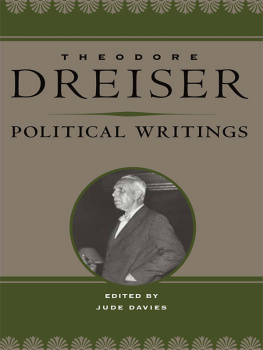
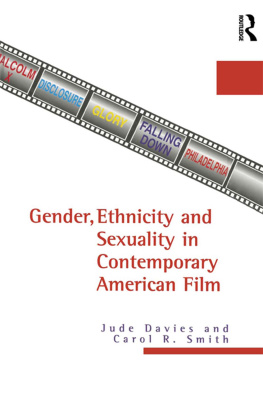

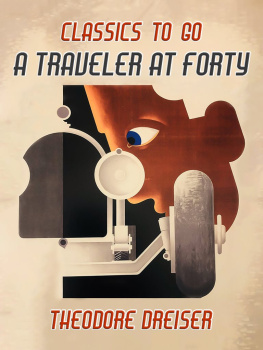
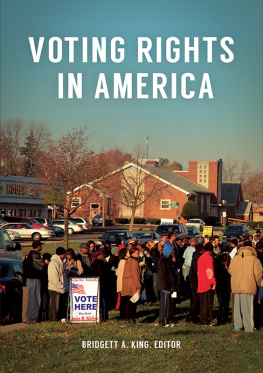
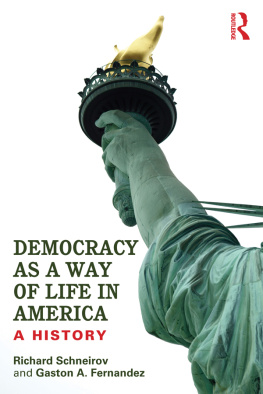
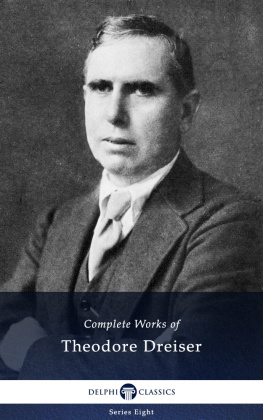
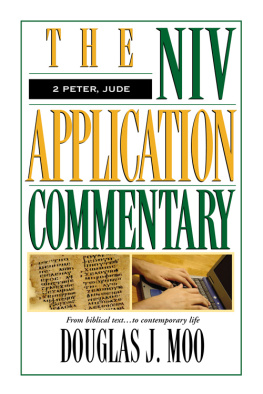
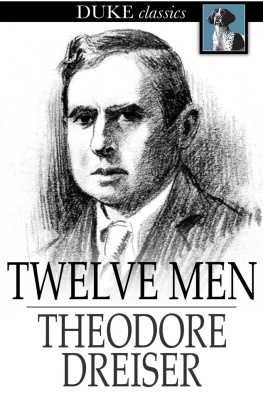
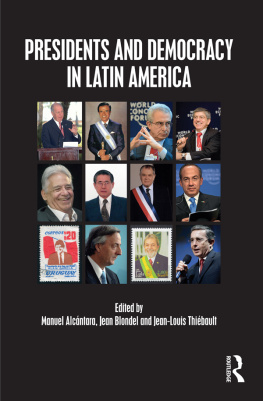
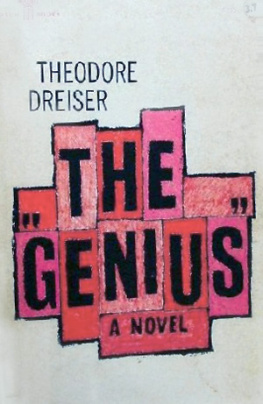



 This book is printed on acid-free paper.
This book is printed on acid-free paper.